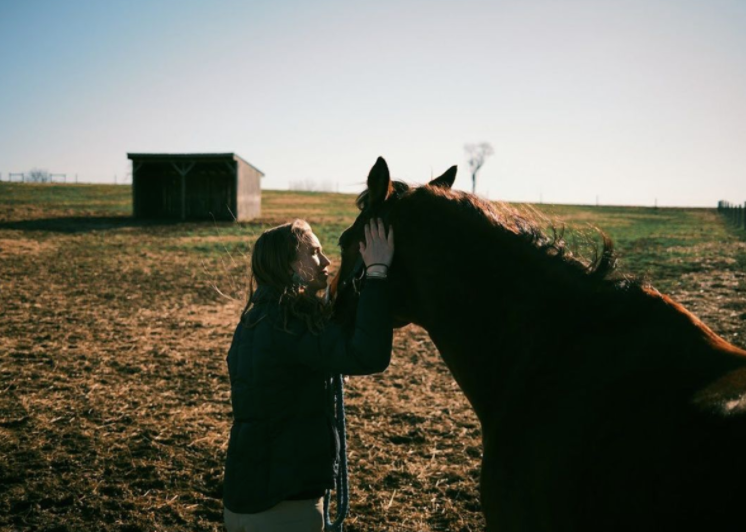
Best of JN: Experience, an Open Mind, and Purpose — What Horses Teach Us About People
“Bringing the traits we develop as horsemen and horsewomen to the table in our human interactions can add great value to our social engagement and participation.”
I am a firm believer that working with horses has the capacity to mold strong, compassionate and responsible community members.
Throughout my time as a Community Development student at Penn State, I have sought out every opportunity to study the relationship between people and horses. Honestly, the equine-focused papers I submitted for a few assignments were probably a bit of a stretch for the topic (thank you to my professors for allowing me to pursue these interests anyway!), but I continued to insist that there was, in fact, a connection between class content and equine interactions.
In my most recent paper, I argued that equine interactions assist in the development of the traits identified by political philosophy as those that make “good” citizens, including the development and sharing of personal experience, an open-mind to diverse experiences and the ability to keep purpose at the center of the work.
 Learning from my horses helps me to be a better horsewoman and person. Photo by Ben Yan.
Learning from my horses helps me to be a better horsewoman and person. Photo by Ben Yan.
First of all, it is important to gain experience when working with horses. “Brutality begins where knowledge ends. Ignorance and compulsion appear simultaneously“ (Charles de Kunffy). In order to ensure positive and productive training with a horse, a highly experienced and well-educated horseman is key to such success, as it ensures clarity, kindness and consistency of the cues sent to the horse.
However, with endless opportunities for growth, new partnerships and new information, no one person will ever know everything about horses. “I need to know my job, what I’m trying to teach, and you don’t learn that overnight. It takes a lifetime to learn how to live a lifetime” (Ray Hunt).
With that, the opportunity and need for collaboration with others is apparent, and requires an open mind to new possibilities: “With anything there is to do with horses, there are about a hundred different ways to get it done… There is more than one right way. There are some things that you won‘t understand or agree with. That doesn‘t make them bad. There are some things you may think are the best way right now. Later, you‘ll come to see that maybe they weren‘t nearly as good as you thought. Keep learning, keep trying. It will come” (Ronnie Willis).
Keeping an open mind to new techniques, research, and training methods can assist in the growth of your own philosophy, allowing for a constant quest for improvement and better horsemanship.
Finally, it is critical to keep purpose at the center of your work with horses. As I discussed in a previous article, keeping your “why” at the forefront of your work gives both you and your horse meaning in your job. Without purpose, there’s no motivation or driver behind the effort, resulting in repetitive commands, a bored rider and/or horse, and behaviors (such as a ring sour horse) that indicate a level of disinterest.
But how does this connect to our interactions with people?
Although many horse people are known for preferring equine company to human company, that doesn’t mean that the skills we’ve developed as equestrians aren’t applicable to our human interactions.
Bringing your personal experience to the table in human society is important for developing as an engaged citizen in the process for productive deliberation. We have the ability to grow as a society when we talk with one another and share our stories, challenges, and values. Showing up with your experience allows individuals to assist in molding our collective institutions.
Another critical component to productive social engagement is the ability to respect others’ individual experiences. Keeping an open mind, while challenging, can create an enabling environment that encourages, embraces, and celebrates diversity. Even if disagreement persists, open conversations can allow for the establishment of a common humanity critical for positive and productive development of good citizens, institutions, and societies.
Finally, when deliberating, collaborating, and interacting (with humans) in these public spaces, keeping the purpose at the center of the interaction allows us to have honest conversations about the values we hold as a society. How can any interaction be expected to be productive if the root of the conversation (the purpose) isn’t clarified and considered?
Bringing the traits we develop as horsemen and horsewomen to the table in our human interactions can add great value to our social engagement and participation. As equestrians, we can learn how to gain experience, value other perspectives, and keep purpose at the heart of our work, not only for our horses, but for our broader interactions as well, so long as we listen to the lessons our horses are teaching us.





